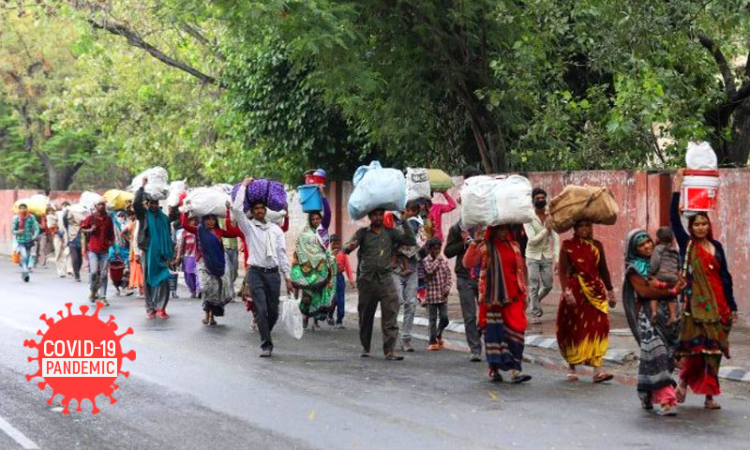Coronavirus And The Constitution – VI: On The Freedom Of Movement
Gautam Bhatia
11 April 2020 5:23 PM IST

Earlier on this blog, I had pointed out that the statutory guidelines issued under the National Disaster Management Act do not ban individual movement; nor is individual movement banned under regulations passed by the several states under the Epidemic Diseases Act or by Magistrates under Section 144 of the CrPC. Consequently, while there exists a "lockdown" – in the sense of a general closure of shops and public spaces, and a ban on public gatherings – there does not exist a "curfew" (i.e., prohibition upon individual movement).
In this context, the order of the NDMA Authority on 29th March 2020 deserves to be studied. The order was issued in light of the fact that after the announcement of the nationwide lockdown in the Prime Minister's speech, there followed a mass movement of migrant labour, especially from the cities to their native places. The 29th March Order, after noting this, goes on to observe that "this is a violation of of the lockdown measures on maintaining social distance."
The order, therefore, appears to draw a distinction between mass movement – which is a problem because it violates social distancing norms – and movement per se. While the Order itself raises a whole set of issues concerning the Hobson's Choice that migrant labourers find themselves in (some of them discussed here), it appears that it continues to maintain the distinction between mass movement and individual movement.
In that context, however, certain actions by states and local authorities appear to be deeply problematic. For example, an order by the DGP of Haryana states that there is to be no movement of people on roads, and directs the picking up of people traveling "on foot" on roads or highways. The order also prohibits "jay-walking" on the roads. Meanwhile, TOI Telangana reported that a local gram panchayat has fined an individual for coming "out of his house" three times in a day. There were similar reports from Goa, about police patrols to ensure that people do not "venture out of their houses." Today, the Delhi Police has said that morning walks are banned.
The reason for this, it appears to be clear, is that the wording of the NDMA orders – including the amendments – is excessively vague, and allows scope for implementational overreach of the kind that is witnessed on the ground. Clarity on this point is not a difficult task to achieve: for example, the UK Guidance – as discussed in the previous post – prohibits public gatherings of more than two people (unless you belong to the same household), and also has an inclusive definition of what constitutes a "reasonable ground" to go out (exercise, shopping for food, hospital visits, and so on). Under the UK Guidance, therefore, if you are (a) an individual, or a group of two people, (b) are stepping outdoors for a listed activity, or (c) have another reasonable ground for making essential travel, then that is permitted. This is also, evidently, proportionate, as Covid-19 transmission chains can be broken as long as people do not congregate in groups. A complete ban on individual movement, therefore, would be disproportionate.
The vagueness in the NDMA's orders have, however, given effective carte blanche to local authorities to actually implement complete bans on individual movement, as they see fit – thus turning the "lockdown" into a "curfew". Indeed, the regular reference by local authorities to the Prime Minister's speech – with its colloquial references to the Lakshman Rekha – seems to suggest that what is being implemented is that speech, and not the law as it stands. This is a lacuna that is not difficult to remedy, and should be remedied swiftly.
Views Are Personal Only.
This article was first published here


